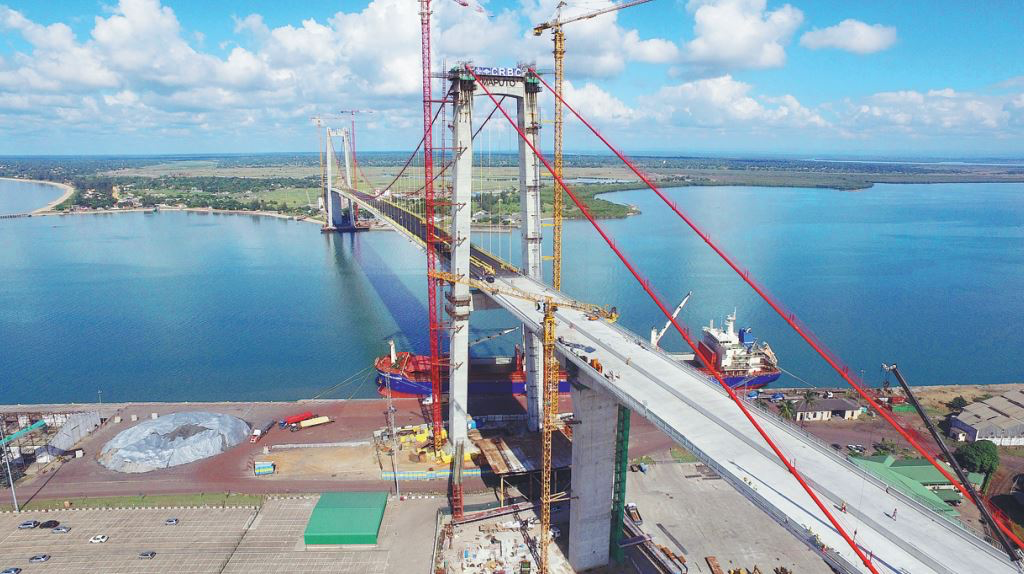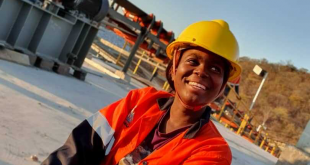By Staff writer

Crossing Maputo Bay, the Maputo-Katembe Bridge, built by China Road and Bridge Corporation, is the longest twin-tower suspension bridge in Africa. Photo provided to China Daily
In the first half of 2025, Chinese firms signed BRI investment and construction contracts totaling around $124 billion, already outpacing their entire 2024 activity. Africa was the leading region during this period, receiving $39 billion in new deals—highlighting a sharp acceleration in Chinese engagement across the continent.
This trend reflects both global and structural dynamics. As China’s domestic growth slows and trade tensions with the U.S. continue, Beijing increasingly looks outward to diversify markets, consolidate resource access, and strengthen supply chains. African governments, for their part, have welcomed infrastructure investment at a time when Western support appears to be softening.
In 2024 alone, Chinese BRI commitments in Africa reached $29.2 billion, up 34 percent from the prior year, split roughly between $13 billion in direct investment and $16 billion in construction contracts. Countries like Guinea, Liberia, the Republic of Congo, and Morocco saw explosive jumps in investment—growth measured in multiples rather than single digits. Significant project sectors included energy (about 31 percent), mining (~17 percent), technology (~14 percent), and transportation (~12 percent).
Among flagship projects are Kenya’s $5 billion Standard Gauge Railway linking Nairobi and Mombasa, which has dramatically reduced travel time but now faces stalled plans for extension due to debt and finance issues. In Djibouti, China financed and built the Doraleh port and modernized the rail corridor connecting Addis Ababa—a strategic hub for regional trade and military posture. Mozambique’s Katembesuspension bridge—Africa’s longest—opened in 2018 at a cost of nearly $786 million, mostly financed through Chinese loans.
Critical-mineral investments are scaling up fast, too. In 2023, approximately $7.8 billion flowed into African mining projects, including the massive Khoemacaucopper mine in Botswana and cobalt and lithium operations across Zambia, Namibia, and Zimbabwe. Some acquisitions valued struggling mines for nominal prices. Rising demand for materials used in electric vehicle production is driving investor interest.
Energy projects are also expanding—both fossil-fuel and renewable. In the first six months of 2025, oil and gas deals reached record highs, with Nigeria alone accounting for about $20 billion in processing facility investments. At the same time, nearly $10 billion was dedicated to clean-energy ventures like wind, solar, hydroelectric, and wastetoenergy projects across Africa—the highest total in BRI history.
Smaller-scale infrastructure remains active, too. China backed approximately $254 million toward Nigeria’s Kano–Kaduna rail line—a 203km standard-gauge route meant to improve connectivity in a region troubled by insecurity. Meanwhile, it continues to modernize existing tracks and equipment under public-private partnership models.
China has also pledged to pivot its African strategy toward “high-quality” cooperation, emphasizing green development, the digital economy (like AI, cloud, 5G), and healthcare partnerships, including hospital networks and technical training. These shifts respond to growing international scrutiny over debt sustainability, transparency, and environmental and social impact.
Trade relations are stronger than ever: in 2023, total ChinaAfrica trade hit approximately $282 billion, with primary commodities and fuel dominating African exports and manufactured goods driving imports. China now stands as Africa’s top trading partner and largest creditor, accounting for roughly 17 percent of public external debt in sub-Saharan Africa by 2021.
In total, global BRI contracts have now reached approximately $1.3 trillion by mid2025, with Africa’s share expanding. Trade and investment flows continue to pivot, and China’s outreach is evolving—from pure infrastructure deals to diversified partnerships in green tech, healthcare, digital connectivity, and critical minerals. The coming years will test whether these ambitions can be translated into sustainable growth, equitable development, and shared agency between China and its African partners.
 Africa -China Review Africa -China Cooperation and Transformation
Africa -China Review Africa -China Cooperation and Transformation
